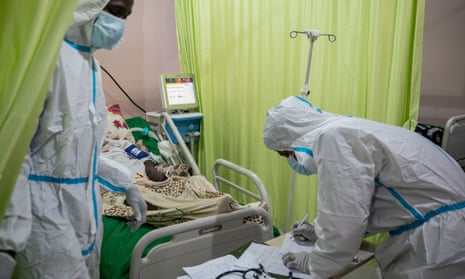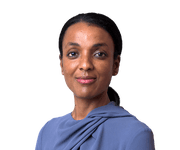In Richard Attenborough’s Cry Freedom, a 1987 film about the South African anti-apartheid activist Steve Biko, there is a line that has haunted me since I was a child. Biko is trying to explain to a sympathetic white newspaper editor what it is like to grow up in a world where your fate is sealed before you’re even born. He describes how black children feel when they see the life white people live. “No matter how smart or dumb a white child is, he is born into that world. And you, a black child, smart or dumb, you are born into this. And, smart or dumb, you die in it.”
The words expressed the very opposite of what every youngster should believe: that, with enough individual effort, you can become whatever you choose to be. Instead, as Biko saw so clearly, the shape of some children’s lives is already decided. All over the world, children are born into lives they will never escape, limited by the circumstances of their race, gender and economic or social status. Those on the wrong side of the divide will be told a variation of the same myth: with enough hard work everyone has a shot, no matter how remote, at a better life. In the west, the pandemic has shattered this illusion, claiming people’s lives and livelihoods according to their racial and economic status. In low-income countries, that illusion was never there to begin with.
To face Covid in those societies is to brace yourself for your appointed fate, to wait and be claimed or get lucky and be spared. As the pandemic dragged on, it was assumed that those of my family in Sudan who still had work would start sharing their income with those who had lost it. There is no state, no furlough scheme, no food bank. No amount of hard work or prudence would have kept the wolf from the door. And there is virtually no healthcare system.
In Sudan, a complete lockdown is unenforceable. In many parts of the capital city, Khartoum, what was not permitted to happen outdoors merely migrated indoors. Weddings still went ahead, only smaller and out of sight. They were followed by funerals. But the bravado of the celebrations in defiance of a virus melts away when the deaths and the sickness come. In neighbouring Egypt, a man proudly told me that his daughter’s wedding had happened not only under the nose of the authorities, but with them as guests. A few weeks later, grim reports emerged of severe oxygen shortages leading to deaths at an ICU in a Cairo hospital.
I have spent much of the pandemic year trying to shield vulnerable members of my family in Sudan remotely, while moving myself between North Africa and east Africa. My worst terror was reserved for my elderly and unwell mother and her siblings, aware that once a person is infected there is nothing to do but wait and see what happens. The anxiety I felt was an extreme version of the lone immigrant’s lot – where you split your resources and try to extend the privileges that you have accrued by sending money home to your family. But those resources can stretch only so far.
One by one family members fell ill, culminating with my mother. They toured the city looking for help and were turned away from hospitals, told that even if they had the money, the resources were not there – no oxygen, no inhalers, no ventilators. The very wealthy paid for the very few private ICU beds, blocking them out in advance. One doctor told me that even when ventilators were available, the apparatus they relied on was not. Intubation tubes, monitors, even the anaesthetic required to hook patients up are all scarce. Another doctor in Khartoum told Reuters: “On a normal day in Sudan you can’t find a ventilator. Those who have immunity will live, and those who don’t will have to pray.”
And so we prayed. Someone found an old oximeter and it was shared around the sick family cluster, used by my mother and several aunts, uncles and cousins on one of their futile daily journeys. Even if your oxygen levels were low, there was nothing that could be done. Modest meals were dropped off by those who were still healthy and had the money to buy more food. If there was a doctor in the family or social network, their phone number became communal. In the absence of public resources, people pooled and shared private ones. While these meagre assets were stretched ever thinner in Sudan, in the UK a government that had a surfeit of them ignored medical advice, delayed lockdowns, spent precious funds on the wrong PPE and splashed out on a furtive tendering process.
My mother pulled through after a panic-poisoned month over Christmas and New Year. I spent that period observing these different realities, emotionally connected to two countries – one where wealth and public health infrastructure were available in abundance, but mismanaged by individual politicians, and another where individual solidarity was all that was left. It has been like having two parents, a rich but profligate one and a poor but prudent one.
Contemplating these differences triggers a sort of vertigo and highlights how unnecessary so much of the pain of the pandemic in the UK has been; how so many people have become resigned to the notion that there is no better way to run an economy and public amenities. The British government is incompetent and the NHS is stretched, but the problem goes deeper than both of these facts. We are a country of immense economic privilege and intellectual and scientific capital, a country that has no business being so high up the table of global death tolls. But we are also a country that has for too long chosen to believe in scarcity: that there isn’t enough to go round, that if someone is struggling, then they simply must try harder to thrive.
This is a con to absolve us from helping others, a lie we tell ourselves in order to believe that we have earned our place on the bright side of Biko’s divide. The truth is that we are all where we are because of dumb luck. Because of the brutal or happy circumstances of our birth. As loved ones in a poor country succumbed to the virus without even a fighting chance of receiving medical or economic help, but still tried to cushion each other’s blows, another lesson was added to the many I have learned over the past year. The only thing that makes us human is that we share when we don’t have to. It is that we understand that there is no natural morality or justice to life unless we actively enforce it through sharing with others. Anything else is apartheid.
Nesrine Malik is a Guardian columnist and the author of We Need New Stories: Challenging the Toxic Myths Behind Our Age of Discontent

